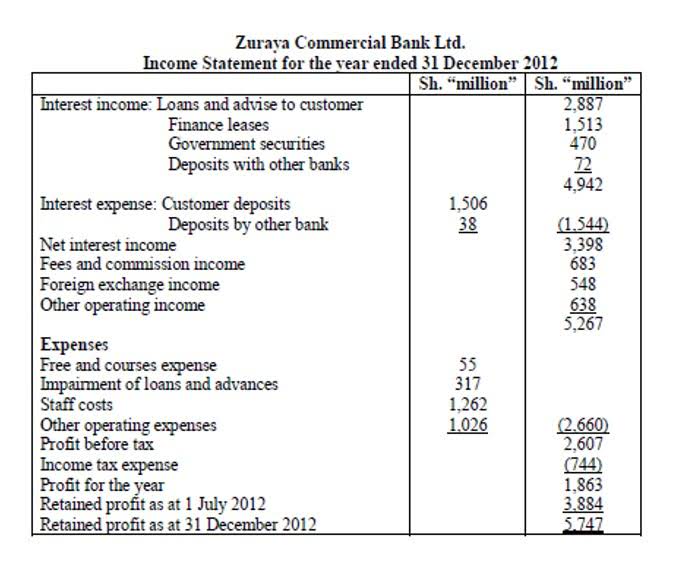
Accounting software allows you to do basic tasks such as tracking inventory, invoicing and payments, and generating reports on sales and expenses. It’s useful for small businesses and freelancers who don’t have the resources to hire an accountant or bookkeeper. Besides, this frees up time so you can focus on running your business smoothly. Check out our recent piece on the best accounting software for small businesses. A certified public accountant (CPA) is a type of professional accountant with more training and experience than a typical accountant.
What is costing?

Tax accountants overseeing returns in the United States rely on guidance from the Internal Revenue Service. Federal tax returns must comply with tax guidance outlined by the Internal Revenue Code (IRC). Luca Pacioli is considered “The Father of Accounting and Bookkeeping” due to his contributions to the development of accounting as a profession. An Italian mathematician and friend of Leonardo da Vinci, Pacioli published a book on the double-entry system of bookkeeping in 1494. As a result, all professional accounting designations are the culmination of years of study and rigorous examinations combined with a minimum number of years of practical accounting experience. In short, accountancy involves each of the preceding tasks – recordation, classification, and reporting.

Related AccountingTools Courses

If an event has a financial implication for a business unit, it must make a record of such an event. In most other countries, a set of standards governed by the International Accounting Standards Board named the International Financial Reporting Standards (IFRS) is used. For some, such as publicly traded companies, audits are a legal requirement. However, lenders also typically require the results of an external audit annually as part of their debt covenants. Therefore, most companies will have annual audits for one reason or another.
Intercompany accounting
Remember to continue expanding your knowledge and staying up-to-date with the evolving practices and standards in the accounting industry. Variance Analysis involves comparing actual financial results to budgeted or expected figures. It examines the differences between planned and actual performance to identify the causes of deviations. definition of accountancy Variance analysis provides insights into cost control, efficiency, and the overall financial performance of a company. Payroll encompasses the total amount of wages, salaries, and benefits paid to employees by a company. It involves calculating and processing employee compensation, tax withholdings, and other payroll-related deductions.
Organizing financial transactions
- The last part of the definition from the AICPA shown above is concerned with the interpretation of the results made available by accounting records and summaries.
- The preparation of such summarized financial statements is frequently the ultimate aim of keeping records and classifying them.
- Income statements are one of three standard financial statements issued by businesses.
- “the art of recording, classifying, and summarizing in a significant manner and in terms of money, transactions and events which are, in part at least of financial character, and interpreting the results thereof.”
- Green Accounting discloses or emphasizes more clearly about the quality of economic growth in terms of sustainable development.
It is prepared to ensure that the total debits equal the full credits, validating the accuracy of the recorded transactions. The trial balance is an essential step in the accounting process before preparing financial statements. An income statement can be useful to management, but managerial accounting gives a company better insight into production and pricing strategies compared with financial accounting.
How Financial Accounting Works
Since accounting principles differ around the world, investors should take caution when comparing the financial statements of companies from different countries. The issue of differing accounting principles is less of a concern in more mature markets. Still, caution should be used, as there is still leeway for number distortion under many sets of accounting principles. Financial accounting is intended to provide financial information on a company’s operating performance.
- It is a key indicator of a company’s profitability and is reported on the income statement.
- For the past 52 years, Harold Averkamp (CPA, MBA) has worked as an accounting supervisor, manager, consultant, university instructor, and innovator in teaching accounting online.
- The entire purpose of financial accounting is to prepare financial statements, which are used by a variety of groups and often required as part of agreements with the preparing company.
- Through the financial statements – the end-product reports in accounting – it delivers information to different users to help them in making decisions.
- Small or private companies may also use financial accounting, but they often operate with different reporting requirements.
- Yield is an important metric for investors in assessing the profitability and attractiveness of different investment opportunities.
- Variance Analysis involves comparing actual financial results to budgeted or expected figures.
- In the United States, generally accepted accounting principles (GAAP) are regulated by the Financial Accounting Standards Board (FASB).
- In recent years, there has been a growing demand on the part of stakeholders for information concerning the social impacts of corporate decision making.
- These adjustments allow others within the business to understand those projections’ potential impacts in relatable terms.
What Is the Difference Between an Accountant and a CPA?

Leave a Reply